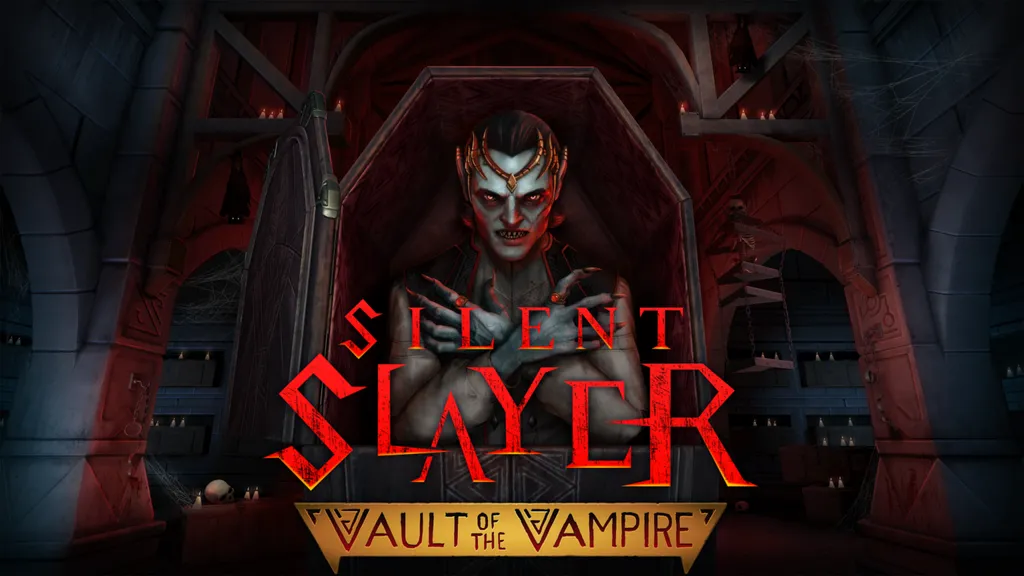Silent Slayer may be a stationary game, designed to be played while sitting down, but that didn’t stop me from breaking a sweat as I tried to end vampires in their sleep.
Schell Games’ upcoming horror game wasn’t the usual creep-filled jumpscare fest you might expect from VR horror. Instead, it reflects the studio’s consistently innovative spirit as it eschews trends in horror game design for something a bit more fresh and compelling.
There are no labyrinthine corridors or shooting galleries in Silent Slayer. Instead, you and your (mildly suspicious) familiar—a talking spellbook who’s guiding you through the process of fighting creatures of the night—are tasked with killing vampires quietly. That means no guns, no flashy combat, and most importantly, no loud noises. Sitting (or standing) in front of a ticking time bomb, Silent Slayer forbids any loud noises at the risk of getting caught and killed by your deadly targets.
The approach keeps the game’s pace slow and methodical—and extremely tense. Based on the levels I played, the process of both opening the coffin and killing the vampire varies from level to level, but all play by similar rules. From sliding a key into a lock to prying nails out from its door, anything can and will go wrong if you do it too quickly. But opening the coffin is only half the battle; once you’ve managed to remove every deadbolt, lock, and nail from the vampire’s wooden tomb, you’ll need to actually kill the bugger.
First, I had to start the process by holding a device up to a point above the vampire’s forehead. Then, a series of directional prompts popped up, asking me to draw runic symbols using my wooden stake destined for the vampire’s heart. Then, using a device that kind of resembles a petrified heart, I located the vampire’s heart before finally running them through. One of the people demoing the game at PAX mentioned that a vampire might wake up if you don’t kill them quickly enough, though I didn’t encounter that.
There’s a strong case to be made that Schell is basically making Operation: Vampire Edition.
My one issue with the pair of levels I played through in my half-hour-long demo is that some of these prompts for killing the vampire were too precise. Maybe it was just my positioning relative to the bloodsucker in the coffin, but executing some of the motions needed to send a vampire to the pits felt overly particular. There were some moments where it seemed like I performed the motion correctly based on where I was sitting but the game registered it as a miss. This kind of thing isn’t necessarily the biggest issue in a vacuum, but feeling encouraged by the game to position myself in a certain way to open up the coffin in the first place and then punished when it came time to stab the fanged monster through the heart with a stake was frustrating at first glance.
That frustration is enhanced by the fact that this is a game all about taking it slow. That speed adds so much tension and weight to every small movement you make because everything you do puts you at risk of getting your veins drained, but it also means that re-doing sections of a level can feel painstaking by the time you’re on your third or fourth attempt. Still, successfully turning a vampire into dust is deeply satisfying. I found myself breathing a sigh of relief each time I completed a level because the tension in this game is as thick as a bowl of oatmeal.
Schell is no stranger to playing with tension in the I Expect You To Die and Among Us VR games, and I enjoyed my time with Silent Slayer. It seems like it’s providing enough different types of tasks and actions throughout any given level to keep its fairly simple loop from going stale. We’ll be curious to see how it holds up over longer play sessions and evolves in its later levels.
Silent Slayer: Vault of the Vampire releases summer 2024 for Quest headsets.


























